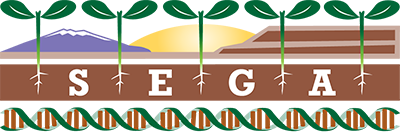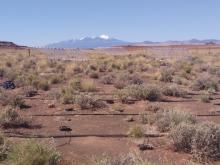You are here
Are soil organisms the key to assisted plant migrations in response to climate change?
Our working hypothesis is that because plants and soil organisms such as beneficial fungi have co-evolved closely, when plants are confronted with challenging new climates they will survive better if they are growing in the presence of co-adapted soil organisms. Assisted migration work on key range grass (blue grama) and a key regional forest species (ponderosa pine) both downslope (to simulate future warming conditions ) and upslope (to simulate assisted migration in advance of climate change) at SEGA sites has suggested that the hypothesis is largely true and that plants transplanted with their "home team" co-adapted soil organisms survive and grow better than those without. In 2018 a full factorial reciprocal inoculation project with Pleuraphis jamesii (Jame’s galleta grass) is being carried out at 3 SEGA gardens (Soap Creek, White Pockets and Little Mountain) to manipulate all possible combinations of 1) climate, 2) soil origin and 3) soil organism origin. This work will build on the team’s previous research and address issues in local adaptation to these three factors.
Theme by Danetsoft and Danang Probo Sayekti inspired by Maksimer

